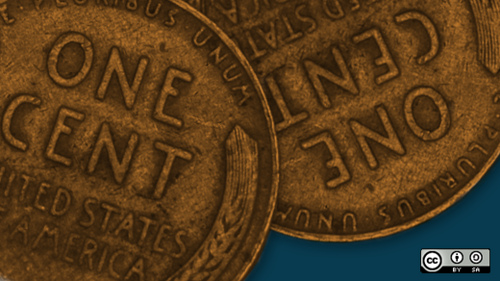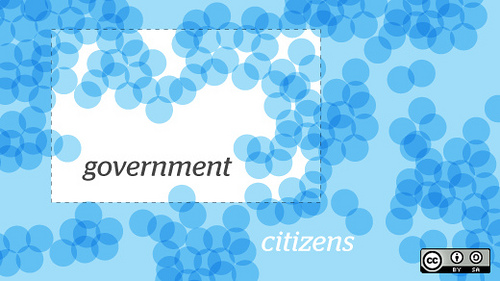There is a national debate brewing about our tax system. Americans across the country are looking hard at their tax bill and analyzing how much they have given and what they are getting back. It’s making many of us wonder how our tax system became so complicated, and whether there is an alternative method for funding public needs. I believe that there is, especially at the local level: citizens should be permitted to choose whether to directly fund public projects they care about.
On the Nature of Paying Taxes
The tax system is structured at its most basic level to minimize individual control. Consider the economists’ definition of a tax, according to Wikipedia:
A tax is a non-penal, yet compulsory transfer of resources from the private to the public sector levied on a basis of predetermined criteria and without reference to specific benefit received.
Two elements of this definition stand out: first, a tax is a “compulsory transfer.” You can vote in or out representatives who set the rates, but once they’re set, you must pay or go to jail. Second, a tax is paid “without reference to a specific benefit received.” You can’t place conditions on your taxes, only paying them if certain things get done. Your representatives, not you, decide what to do with your taxes after you’ve paid.
Taxes are also opaque, and results are slow. Local, state and federal budgets are usually available online, but they’re far from transparent: try relating the dollars you paid with the benefits you received. It would be virtually impossible to draw that connection given the number of people and dollars involved, and the fungible nature of tax dollars. Public projects are also often lengthy undertakings that cross over multiple budget cycles. As a result, when projects are “shovel-ready” (and often long after taxpayers think they’ve paid for them), governments may find they’ve already allocated their budgets to pressing projects that arose in the interim. Many projects the public wants are left uncompleted.
Paying taxes makes sense for a variety of public goods that none of us could fund individually but that we all benefit from: police and fire protection, maintenance of public roads, etc. But paying taxes isn’t designed to satisfy each taxpayer as an individual, and I believe this is fueling much of the growing antagonism we see between people and their government.
I Might Give More If…

Image by OpenSourceWay
Nonetheless, there is a solution. Chances are that some public resources you care about will be funded by your government, and some will not. Many people around this country would be willing to contribute to those unfunded public resources if they could be guaranteed that their money would go where they want and have immediate effect. In other words, government would have to meet individualized conditions in order to collect these dollars.
At CivicSponsor, we’ve polled hundreds of Americans, and we’ve heard folks say they’d even pay thousands more if they knew the money went to their local school, or to green infrastructure in their neighborhood, or to new bike lanes. In a poll of 100 respondents we conducted in August 2011, only 28% supported a local tax increase in their home town, but if they could direct where the tax dollars were spent, that number increased to an incredible 61%. And 67% said they would choose to give to local government if they could get a tax deduction. The reason is that people view such amounts as investments, not charity: better schools save on private tuition, green infrastructure can reduce utility bills, and biking can reduce the cost of commuting.
That’s why we are building tools to allow people to pool their resources and fund public projects directly. 26 out of 100 of respondents to our March 2011 poll said they would give over $1000 to their local government if they could keep control over where the money went. This is evidence that there’s enough money to get important, needed public goods completed outside of the tax system. Dollars given in this manner can be tracked and audited, and their impact can be measured in clear terms, resulting in increased transparency, control and satisfaction with public contributions. Because these are public goods, however, we need our governments to consent to this novel funding method. Fortunately, 100% of the greater than 30 jurisdictions around the country that we’ve spoken to are thrilled about the possibility of generating new revenue and greater civic engagement in this manner, and we need to get more jurisdictions on board.
CivicSponsor from CivicSponsor.org on Vimeo.
A World of Movers and Shakers
Setting up channels to make these contributions to government would fundamentally change the way we look at our community. It would empower each of us to be a local mover and shaker: that bike lane running down Main Street? You helped build it. The park your dog runs around in? You and your friends funded it, because you saw a need and you didn't want to wait on government to get it done. All of this, and you got a tax-deduction, too! Imagine how that would change the way we respect our public assets.
To implement a direct funding system like this, we only need to ask our local representatives to find or build the tools. CivicSponsor is one organization that offers these in an easily-accessible online platform, with a proprietary system to monitor and audit the flow of money, and there may be others in the works. The key is to find tools that provide control and transparency; we cannot simply raise the funds without government partnership and then hand them to a public agency, because this provides no auditing or assurance to contributors that the money goes where it’s supposed to. It’s also likely that such contributions would not be eligible for a tax-deduction. Once the tools are in place, your government can start getting immediate feedback—and dollars—for public projects in your community.
This is similar to (but more than) participatory budgeting, which allows the public to directly allocate some of their local tax dollars to programs they collectively choose. Participatory budgeting is an exciting movement that deserves support, but it doesn’t allow each individual to express her conditions on the dollars she gives. It offers greater control over what’s already in the system. By contrast, conditional funding would be additive to the pool of total resources for public projects: we electively offer more to certain desired public goods. It can also offer a “tipping point” funding method used with some crowdfunding platforms, where if the project isn’t completely funded, the money isn’t collected.
The conditional funding that we propose is also similar to some citizen engagement tools, like Blockboard, SeeClickFix, ChangeBy.Us and many others. These tools allow citizens to share their ideas for public projects with their government, and because the ideas are made public, others can show support and rally around the most popular ones. What’s missing, however, is the funding: even if the local government accepts the top ideas, someone needs to usher them through the budgeting process. That takes relationships with government staff who can see the idea through to its end. CivicSponsor creates that relationship ahead of time: the government agrees that each project listing on our site will be completed if it is funded. This opens a dialogue between citizens and their government with real dollars at stake. We’re not just about project ideas that people like; we’re about project ideas that people will verifiably pay for.
Looking Ahead

Image by OpenSourceWay
There is an exciting future for citizen involvement in public projects. Especially in smaller jurisdictions, there are pressing challenges for local governments who need new revenue, and concerned locals should reach out to their representatives and organizations like CivicSponsor (email me at russ@civicsponsor.org) to explore ways to implement conditional funding. But the reports of the death of small town America are greatly exaggerated, because we care about our home towns too much to let them fail. The lasting solutions to these problems will be those that empower individuals. To move ahead in light of grassroots movements like Occupy Wall Street and others, governments must meet new conditions and be responsive to demands from citizens who can easily make their voice heard. I believe that governments must offer them expression of these conditions and demands at every level, including (and especially) as attachments to the dollars they spend on public goods.









